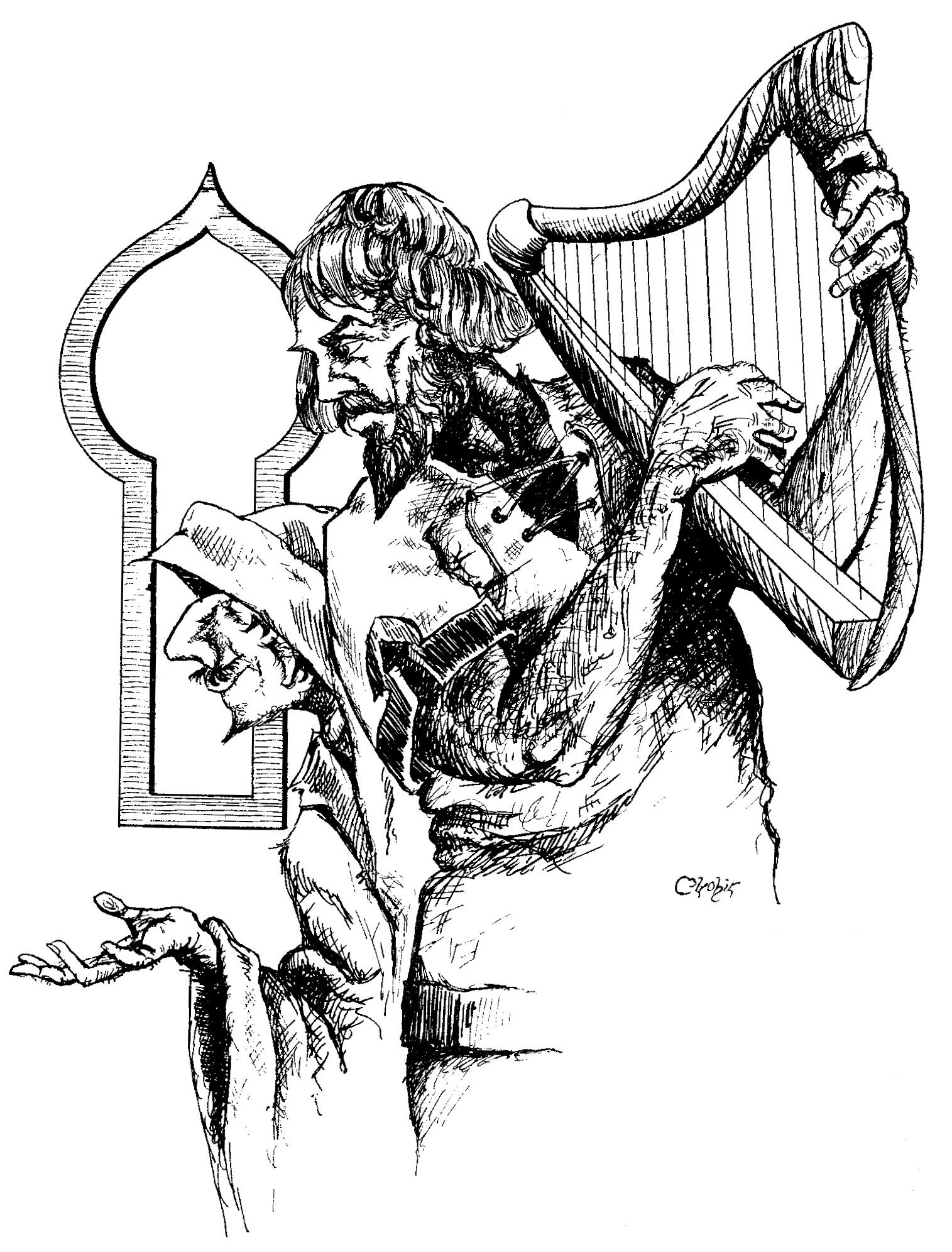I Was Walking to Thessaloniki When… A Review of “A Feast of Ambrosia” by Glenn Rahman
A Feast of Ambrosia is a collection of stories about two mismatched adventurers, Donalbain and Bingor the Arab. Their stories take place in the Byzantine Empire around the year 1000 AD. At that time the Byzantine Empire was a mighty big place, including parts of what we now call Eastern Europe, parts of Africa and the Near East. More about the locales later, and how they help drive the stories.
Donalbain is a Scotsman, big, handsome, fair-haired. His day job is as a harper, though the suggestion is that his melodies are not receiving much favour amongst the more refined Byzantines. Bingor is a small, swarthy, clever fellow from Sicily, which at that time was a Moslem possession. However Bingor is a Christian and only looks like an Arab. He openly admits that he lives on his wits, which allows the reader to imagine all sorts of possibilities. When we meet them they are both a little light in the purse and have been missing a few meals.
In fact their first meeting (and the start of the first story) is a contentious one. Donalbain has just caught Bingor stealing his purse and wants it back. He intends to brain Bingor in the process. Bingor has climbed the only tree in the locality and is holding Donalbain at bay with a dagger, preventing the Scotsman from climbing up after him. After a little negotiation and some promises on Bingor’s part they come to an agreement and set off together.
Exposition and narrative in Feast are in modern English, but our two heroes speak to each other in a comic variant of Shakespeare’s English. This is where the fun starts. When they’re not running from enemies (and sometimes when they are) the two men squabble like the chalk and cheese they are. Think banter and sorcery. Donalbain casts himself as an upright man of resolute courage and from this position is forever chaffing at Bingor, for faults both real and imagined. Bingor, being both dry and sly, answers in a very different tone. One liners abound. The sharp back and forth also drops some necessary background about the Empire and the customs of the times. And Donalbain’s inflated opinion of his own righteousness doesn’t stop him from going thieving with Bingor.
Our heroes decide to travel together to Thessaloniki (Macedonia), which we learn is a big deal city locally. On the way they encounter a mysterious young woman. In Thessaloniki they discover that they are enmeshed in the blackest of black magic. Are our heroes up to it? Probably not, but they intend to muddle through anyway.
And there is a hell of a lot of black magic in the Byzantine Empire. In fact our heroes seem to run into it at every turn. Feast is really good here. There are some original turns on everything from sorcery to the undead. The first story “Well Met in Thessaloniki” takes a little time to get going but it does the heavy lifting for the later stories, showing our heroes in different environments, doing what they do.
The stories are rich with original plot devices and walk-on characters which range from the distracting to the downright crazy. Imagine a sword-and-sorcery world peopled with both evil sorcerers and minor characters who seem to have wandered in from a comedy movie. Feast feels like a real world, there’s always a lot going on and the narrative is descriptive, colourful, and fast moving. And the author makes good use of the varied Byzantine domains. Two of the stories are set in Thessalonki, which is a combination of palatial villas of the rich, cobbled streets, and a thieves’ quarter which contains gloomy medieval timbered warehouses that people go into but may not come out of. There’s even a desert story, set in the eastern province of Byzantium, where ancient ruins and shifting sands hide treasure and danger.
And the stories are thrilling in this compelling almost-historical world. Donalbain and Bingor want their every task to be quick and successful. They want to do A, then B, then collect C. Which is usually gold. It never happens that way! There’s always some villain or dumbass who wanders into the scene and screws everything up. Watching Donalbain and Bingor try to improvise on the fly when their plans crash around them is excellent entertainment.
After the first story and its setup of the two heroes, we are drawn more and more into the relationship between them. There’s enough space in the stories for both adventure and character development. I particularly liked “A Draft of Nectar” for its twisty clever story and dark evil atmosphere.
Feast is a really engaging read. We have two fellows who think they are absolute badasses but are really too good-hearted to be successful thieves. For the most part the stories are fresh and original and have a real tension to them.
A book for sword-and-sorcery readers who like a change of scene and a change of pace. If you are looking for some fun in your adventure, I recommend A Feast of Ambrosia.


